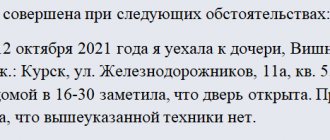Do you suspect deception, a desire to illegally profit from your feelings by challenging paternity? Have you become an unwitting alimony payer? Or did you simply have certain suspicions that you are not the real father of the child? Have you often wondered what actions need to be taken to achieve the truth? Disputing paternity is the answer. This question especially arises after the divorce of the spouses, when all joint property is distributed during the division of the property of the spouses - the time comes for the concept of disputes about children.
If you have at least one of these questions, or another, similar situation has arisen, then you have probably already decided to challenge paternity. Our family lawyer, or family lawyer as he is also called, will tell you all the intricacies of the procedure - challenging paternity.
Who can file a claim to challenge paternity?
Certain categories of citizens are granted the right to challenge paternity at the legislative level:
- persons who are officially registered as parents;
- paternity can be challenged by the biological father of the child who wishes to establish his paternity in relation to the child;
- a child who has become an adult can challenge paternity, knowing that the person indicated as his father is not such, and not wanting to have any legal connection with this person.;
- guardians or those who are legally entitled to represent the interests of the child.
USEFUL: watch the video on how to challenge paternity and ask your question in the comments of the video
Procedure for challenging paternity
You should know that, in accordance with family law, the entry about parents in the birth register can only be changed in court, by filing an application to challenge paternity in a court of general jurisdiction. There is no other procedure for this action.
The procedure for challenging paternity (challenging paternity by a mother, challenging paternity by a child) involves submitting the following documents:
- the corresponding statement is a claim (Article 131 of the Code of Civil Procedure of the Russian Federation);
- a copy of the child's birth certificate;
- a document confirming payment of the amount in the amount of the state duty established by law (clause 3, clause 1, article 333.19 of the Tax Code of the Russian Federation);
- reliable information that proves that the citizen recorded in the act as a parent is not biologically such (Article 55 of the Code of Civil Procedure of the Russian Federation).
Conducted genetic testing, witness statements, as well as other materials (personal letters, photographs) are information that serves as evidence.
When is it not permissible to challenge paternity?
The Family Code legally limits the legal challenge of paternity in the following cases:
- When a married couple has a child as a result of implantation or artificial insemination, which was carried out with a written agreement of both the mother and father for such a medical procedure.
- If the interested citizen expressed a desire to challenge his paternity after an act was recorded stating that the child was born from a surrogate mother who produced the baby from the medical implantation of an embryo, and such a procedure is confirmed by agreement from three parties.
- When deciding whether to file a claim to challenge paternity, it must be borne in mind that the father should not have known that he was not the actual father of the child at the time he was indicated by his father in the birth register. Otherwise, the request to challenge paternity will not be satisfied by the court. This rule is regulated by the Family Code of the Russian Federation.
- If the man who is listed as the father in the act was not officially married to the mother of this child, but voluntarily agreed to recognize himself as his parent. In this case, paternity recognized in the registry office obliges the citizen challenging paternity in court to present to the court evidence that information confirming that there is no family connection between them became known to him only after he declared voluntariness in the registry office recognition of himself as a father.
- When the applicant who files the relevant claim is not legally endowed with such a right.
Cancellation and return of alimony
If a man has successfully challenged paternity, another question arises: what to do with alimony that was previously ordered by the court, paid voluntarily or as part of enforcement proceedings. It is important to distinguish between the cancellation of existing alimony obligations and the return of previously paid funds.
To cancel the assigned alimony, the man must apply to the court with an additional statement of claim. If the claim to challenge paternity was satisfied, then a court decision on this will be sufficient to cancel alimony.
Remember that this does not happen automatically: a separate claim and a separate trial are required. Until a decision is made to cancel alimony, you must fulfill your previously assumed obligations. Even if the new process takes several months.
As for the return of previously paid alimony, the Family Code does not provide for such a possibility. In some cases, you can return funds:
- The collection of alimony was carried out on the basis of false paternity documents.
- The agreement on voluntary payment of alimony was declared invalid in court.
- Alimony was collected on the basis of a fake court decision or writ of execution, which was revealed in a separate trial.
Grounds for challenging paternity
The basis for challenging paternity is, first of all, the record of the registry office about the father of the child, when in fact the indicated person is not the father of the child. In this case, a man can be indicated as the father of the child:
● due to the presence of a registered marriage with the child’s mother, while not being the child’s biological father;
● if the person, when establishing paternity, did not know that he was not the biological father of the child.
Evidence to challenge paternity
The law office "Katsailidi and Partners" provides evidence that the man is not the father of the child:
- explanations of the plaintiff and defendant, as well as third parties,
- witness statements,
- written evidence, such as letters, including email correspondence,
- photos,
- audio and video recordings,
- conclusion of a genetic examination, which is ordered by the court during the consideration of the case. The conclusion, of course, can be made by a man before going to court, but the child’s mother may question the reliability of the conclusion of the examination presented by the plaintiff. It is worth noting that genetic testing is the most important and most reliable evidence containing information about whether a man is the actual father of a child or not.
According to the position of the RF Armed Forces, if a child has reached 10 years of age, it is necessary to find out his opinion, since in this case the interests of the child are directly affected, and if the child’s mother recognizes the claim of the legal father, the court does not have the right to accept such recognition, because it entails a violation of the rights of the child. The court must evaluate evidence in its entirety.
What can serve as evidence in the case?
The key and indisputable evidence is the results of genetic testing. If the defendant in court refuses to acknowledge the demands to challenge paternity, the plaintiff files a petition to conduct a forensic genetic examination. Its results, with an accuracy of 99 and 9 percent in the period, will confirm the validity or fallacy of the stated claims.
In legal practice, there have been situations when the defendant (the child’s mother) refused to conduct a genetic examination or interfered with its conduct. In this case, the court reserves the right to satisfy the claims automatically.
Not so strong, but significant evidence in the case can include witness testimony, medical documents (for example, a man’s infertility confirmed by an extract from a medical record), photographic and video materials.
If the defendant admits the claim voluntarily, the court satisfies the plaintiff’s demands, and adjustments are made to the registry office’s record of the child’s birth.
How to write an application to contest paternity?
Jurisdiction of cases challenging paternity: a lawsuit challenging paternity should be filed in the district court at the place of residence of the defendant.
State duty when filing a claim to challenge paternity: the state duty for filing the said claim is paid in the amount of 300 rubles.
When preparing a claim, follow the rules of the Code of Civil Procedure of the Russian Federation regarding the form and content of the claim, which must be in writing and contain information:
- the name of the district court where the plaintiff files the claim;
- Full name and address of the plaintiff, telephone number, email;
- Full name and address of the defendant, telephone number;
- name of the claim: “statement of claim to challenge paternity”;
- the contents of the claim indicate the circumstances of the case that served as the basis for filing a lawsuit. For example, the plaintiff and defendant were in a registered marriage in which they had a child. When the child turned 10 years old, the plaintiff began to notice that the child did not look like him and decided to have a genetic examination, which showed that he was not the child's biological father. In connection with these circumstances, the plaintiff files a lawsuit in court. Perhaps the plaintiff learned that the child was not his, from some third parties, or from the child’s mother, i.e. The circumstances may be different and they must be presented without the emotional component and assessment of the behavior of the child’s mother. It is not necessary to conduct a genetic examination before filing a claim; you can file a petition to order such an examination at the stage of consideration of the case by the court. The claim should also refer to legal norms regarding issues of challenging paternity;
- in the pleading part of the claim the requirements are indicated, namely, you can indicate
- establish that the plaintiff full name, date of birth, place of birth is not the biological father of the child full name, date of birth, place of birth;
- exclude from the record of birth certificate No. ___ dated “__” _____ ___, compiled by the Civil Registry Office, the child’s full name, date of birth and place of birth, information about the plaintiff’s full name, date of birth and place of birth, as the child’s father;
- change the child's last name from ____ to ________ (mother's last name).
- By challenging paternity, a person actually challenges the entry about the child’s father contained in the birth register and, accordingly, in the child’s birth certificate
When justifying his claims, the plaintiff will refer to certain circumstances that may be supported by some documents. Copies of the relevant documents must be attached to the claim, listing them in the appendix. You must also attach the original receipt of payment of the state fee. It is possible in the pleading part of the claim to indicate a list of witnesses (full name, address) whom the plaintiff asks to be summoned to court if they know any circumstances in the case;
At the end of the application there is a date, the plaintiff’s signature and a transcript of the signature.
The claim with copies of documents is filed with the court according to the number of persons indicated in the claim, under the mark on the copy of the plaintiff when directly filed in court. You can submit your claim by mail.
USEFUL: see more tips on filing a claim in court, write your question in the comments of the video
Examples from judicial practice
When a child was born during a marital relationship or within three hundred days after a formal divorce, the default presumption of paternity applies.
However, the law allows one to cast doubt on the relevant fact. Both the mother and his putative father have the legal right to seek assistance from the district court.
Several precedents are given below as illustrative examples.
Challenging paternity after divorce at the request of the mother
The essence of the existing dispute is briefly as follows. The woman turned to her ex-husband with a lawsuit, in which she asked to testify that he is not the father of her daughter.
The girl was born before three hundred days had passed since the divorce was completed. Therefore, the default entry included information about the former spouse.
And also a claim was made that paternity belongs to the plaintiff’s current common-law husband. The defendant did not object to the stated demands.
By its decision of June 23, 2021 in case No. 2-68/2017, the Shelabolikha District Court of the Altai Territory satisfied the claim. At the same time, the motivational part was based on the results of officially conducted examinations.
Denial of paternity by a man
A citizen of Nikolaev (last name has been changed) filed a lawsuit in court. He asked to exclude the entry about the child with reference to Nikolaev’s paternity.
The requirements were motivated by the fact that on the day the boy was born, the couple had not lived in the same territory for a long time. In addition, his birth served as the basis for the subsequent dissolution of the marriage.
By the decision of the Zyuzinsky District Court of Moscow dated February 11, 2014 in case No. 2-353/2014, the plaintiff’s demands were satisfied. As a result, the court decided to exclude current information about the father from the registry office record.
If the absence of paternity is known in advance
The subject of the dispute was the appeal of a man challenging the paternity of a girl born during a marital relationship. He was included in the deed record by his father.
The application is motivated by the fact that the plaintiff could not have children due to health problems. In turn, the defendant objected to the demands put forward.
She explained to the court that she gave birth to a child from another man in agreement with her husband, and he knew it. In addition, the plaintiff took care of the girl and paid alimony even during her studies at the institute.
By decision of the Otradnensky District Court of the Krasnodar Territory dated May 23, 2017, case No. 2-560/2017, the claims were denied.
The judge pointed out that the abolition of paternity can only take place in a situation where the man did not know that he was the father of the girl at the time of the formation of the act record.
When spouses do not live together
A woman filed a lawsuit to exclude her husband as the father from the birth record of her son. The statement is justified by the fact that the spouses have not lived together for a long time and do not run a household.
The defendant did not object to the demands and confirmed that, for his part, he had nothing to do with the paternity of his son.
Under such circumstances, the Zaeltsovsky District Court of Novosibirsk, by its decision dated May 13, 2017, case No. 2-1110/2017, considered it necessary to satisfy the claim.
Child support after challenging paternity
If the court determines that the man indicated in the child’s birth certificate is not in fact his father and the record about him is subject to exclusion from the child’s birth record, then he becomes free from any obligations towards the child, including from paying alimony for his maintenance.
IMPORTANT: if alimony was collected in court, it is necessary, simultaneously with the requirement regarding challenging paternity, to submit a request for exemption from payment of alimony for the maintenance of a minor, collected on the basis of a decision (court order) of such and such a court dated such and such a date, attaching a copy relevant judicial act.
Why is paternity contested?
Reasons for filing a claim in court with the procedure for challenging paternity, you benefit from the following:
- when challenging paternity, you are exempt from paying alimony that was illegally collected from you, and you will be able to devote your income entirely to your new family, or spend it on your own needs;
- Legally, you will not have any relation to the child previously registered in your name and, therefore, you should not worry about inheritance relations. You will be able to dispose of the inheritance as you see fit;
- You will relieve yourself of all responsibilities for the development and upbringing of the child, you will not need to worry about paying for his education, treatment, etc., and if the child is at fault, civil claims will not be brought against you for damages as a result of children's pranks.
Some questions and answers
Many people turn to lawyers with their problems regarding invalidation of paternity. Both mothers and fathers of children ask questions to professionals.
Situations vary. If a child was born within the framework of a family relationship, it can be more difficult to refute paternity.
However, courts often make decisions in favor of the interested party to the dispute. It is only important to prepare your claim correctly.
Denial of paternity
My husband flatly refuses to confirm that our little daughter is his and is threatening us with divorce. What should I do? We recommend! Deprivation of parental rights in relation to a child
Alla, Moscow.
Expert commentary
Roslyakov Oleg Vladimirovich
Lawyer, specialization civil law. More than 19 years of experience.
Ask a question
Contact the court with a substantiated claim to establish the fact of paternity. At the same time, you should insist on ordering an examination. Judges usually agree to this request. It is important to know that if the spouse refuses the research, the court ultimately has the right to do without its results. There is an article for this. 79 Code of Civil Procedure of the Russian Federation.
The birth of a child without long-term cohabitation of spouses
I have not lived with my wife for several years. Moreover, now we are in different cities. I heard from friends that her son was born a month ago. How can I protect myself from claims regarding alimony?
Fedor, Balashikha.
Expert commentary
Roslyakov Oleg Vladimirovich
Lawyer, specialization civil law. More than 19 years of experience.
Ask a question
For now you can do nothing. If a claim arises, counterclaims can be made. They will concern the exclusion of information about your paternity from the registry office documents.
Evidence of non-paternity
This is the situation. My wife gave birth to a girl as part of our marriage. I have reasonable suspicions that this is not my daughter. What is the best way for me to deal with this situation?
Konstantin, Krasnogorsk.
Expert commentary
Roslyakov Oleg Vladimirovich
Lawyer, specialization civil law. More than 19 years of experience.
Ask a question
From a worldly point of view, it is best to talk to your wife and resolve all differences. However, you can insist on conducting a biological examination. The court has the authority to appoint it.
Alimony and paternity
Please advise how to solve this problem of mine. I am currently paying child support for my five year old son. However, I became reliably aware that he has a different father. What should I do?
Evgeniy, Vnukovo.
Expert commentary
Roslyakov Oleg Vladimirovich
Lawyer, specialization civil law. More than 19 years of experience.
Ask a question
The only correct solution would be to go to court. The submitted statement of claim may contain several demands. The first of them has an emphasis on legally establishing the fact that you are not the boy’s natural father. You also need to ask to cancel the existing record for the child and exemption from paying existing child support. When collecting them by bailiffs, it is necessary to transfer to them the court decision that has entered into force.







